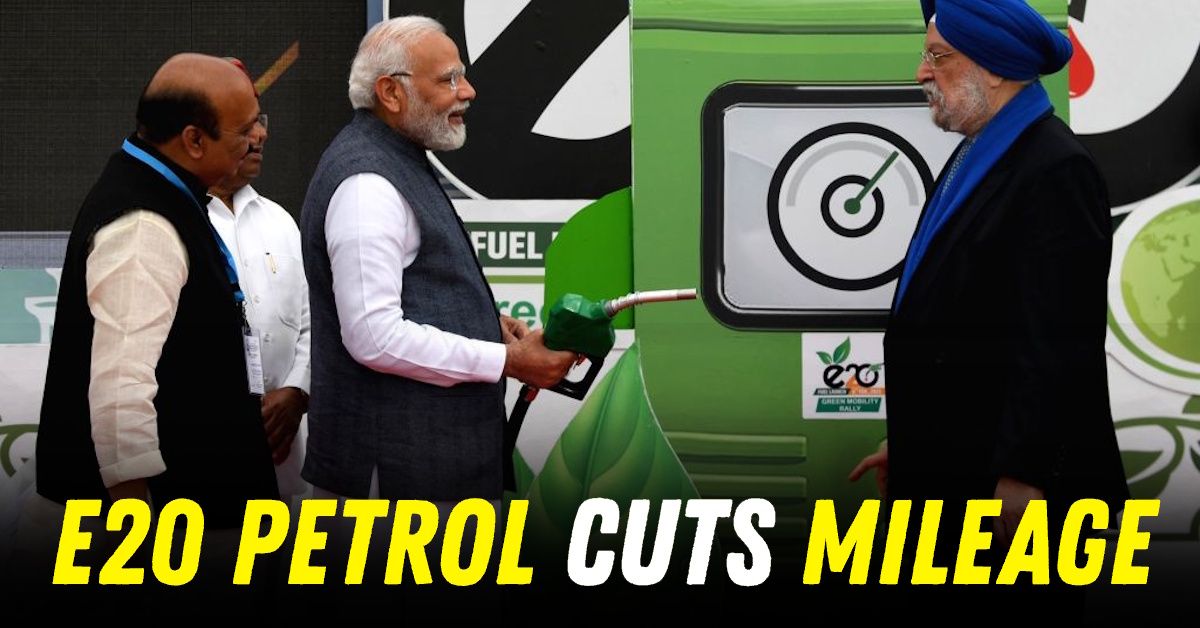2 Out Of 3 Car Owners In India Are Opposed To E20 Petrol


India may have achieved its ambitious target of blending 20% ethanol with petrol five years ahead of schedule, but public reaction is far from celebratory. A recent nationwide survey conducted by LocalCircles has laid bare the widespread discontent among vehicle owners. Out of over 36,000 respondents across 315 districts, a staggering 66% opposed the E20 mandate. Only 12% backed the move.
The reasons for the pushback are layered. While 44% of respondents wanted the mandate rolled back entirely, another 22% expressed conditional support, provided fuel stations offer choices such as E5, E10, and E20, along with corresponding price incentives. In short, the opposition is not solely about ethanol itself but stems from the lack of transparency and consumer choice.
Among the most pressing concerns raised by vehicle owners is the marked drop in fuel efficiency. For cars bought in 2022 or earlier, nearly two-thirds of owners reported lower mileage in 2025. This is particularly concerning as most of these vehicles were designed for E10, not E20.
The numbers tell a worrying story. Around 22% said their cars delivered 15-20% less mileage, another 22% reported over 20% drop, and 11% saw a reduction of 10-15%. Government estimates peg the drop at just 1-2% for E10-compatible vehicles and up to 6% for others. The discrepancy has created a growing trust deficit, as real-world performance diverges sharply from official claims.
The shift is not just pinching wallets; it’s raising doubts about how thoroughly real-world conditions were considered before enforcing the mandate. Urban traffic, rural road conditions, and India’s diverse climate are variables that lab studies and controlled testing may not fully capture.
Another significant concern is vehicle compatibility. Carmakers including Kia and Jeep have clearly warned that using E20 in older cars could void warranties. This leaves owners with a difficult choice: use available fuel and risk damage or spend more to find and store alternative blends, if even available.
Technical issues go beyond just warranties. Ethanol absorbs water from the air, causing rusting in fuel tanks, corroding parts, and degrading seals and hoses. Reports of engine knocking, cold start trouble, and sluggish acceleration are growing more common, especially in vehicles not built with ethanol-resistant materials.
The government maintains that replacing parts like rubber hoses and gaskets after 20,000 to 30,000 km of E20 use is routine and inexpensive. However, vehicle owners argue these parts were expected to last far longer and their premature failure adds to maintenance costs that they had not budgeted for.
A key contributor to the backlash is the absence of clear labelling at fuel stations. Many motorists remain unaware of what blend they are buying. Even when fuel pumps carry markings, the distinction between E10 and E20 is not always evident or understood. Some stations stock only E20, forcing everyone to use it regardless of their vehicle’s compatibility.
Moreover, consumers find little logic in paying the same or even higher prices for a fuel that delivers less mileage. Ethanol costs less to produce than petrol, yet pump prices hover between ₹100 and ₹104 per litre. While the government saves significant foreign exchange by importing less crude oil and pays over ₹1.2 lakh crore to farmers for ethanol, there is little benefit passed on to the actual fuel buyer.
The opposition to E20 should not be mistaken for resistance to green policies. Most vehicle owners are not against biofuels or sustainability goals. What they are pushing back against is being caught unprepared in a policy rollout that did not consider the existing fleet's readiness, provided no clear labelling, and imposed hidden costs.
LocalCircles plans to submit the findings of its survey to policymakers with recommendations to introduce fuel choice at pumps and provide clarity on vehicle compatibility. Their suggestions come at a critical time, as the government eyes a transition to E27 and eventually E30 fuel blends.
If the E20 rollout is seen as a test case, the current public response is a red flag. Ethanol blending might reduce oil imports and support farmers, but unless consumers feel protected and informed, such transitions risk becoming unpopular and unsustainable.
The path to green mobility must be inclusive. For India to succeed in its ethanol goals, the policy must not just serve macroeconomic and environmental interests but also the everyday driver trying to balance cost, performance, and vehicle longevity.